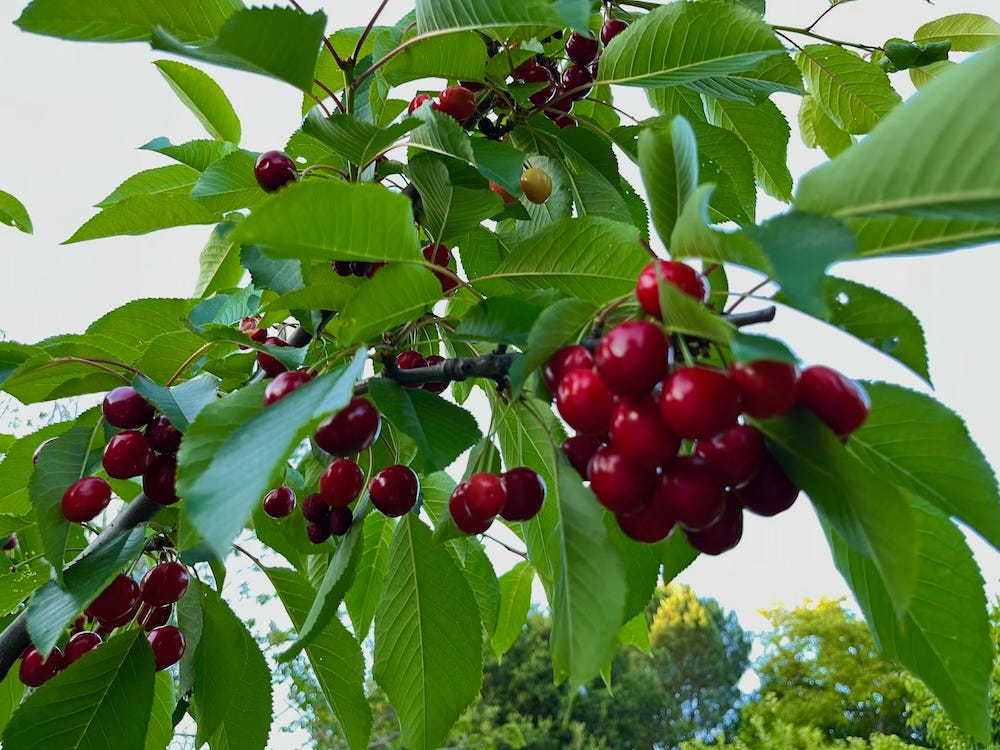
Life is just a bowl of cherries. So live and laugh at it all.” Lyrics by Lew Brown, Sung by Rudy Vallée, 1931
The birds are flocking to the two trees. Every day I watch them devour my precious, unripe fruit, as I impatiently wait for the sunshine to turn the orbs into deep reds and purple. Finally, I can’t take it anymore. I grab my pruning shears and put on my boots, taking a colander.
StarStyle® Empowerment is a reader-supported publication. To receive new posts and support my work, consider becoming a free or paid subscriber.
To the orchard I tramp eager to pick as many cherries as possible before all are eaten by my feathered friends. The Queen Anne’s are almost ripe, but the Bings are still small. Nevertheless, I fill my colander to the brim
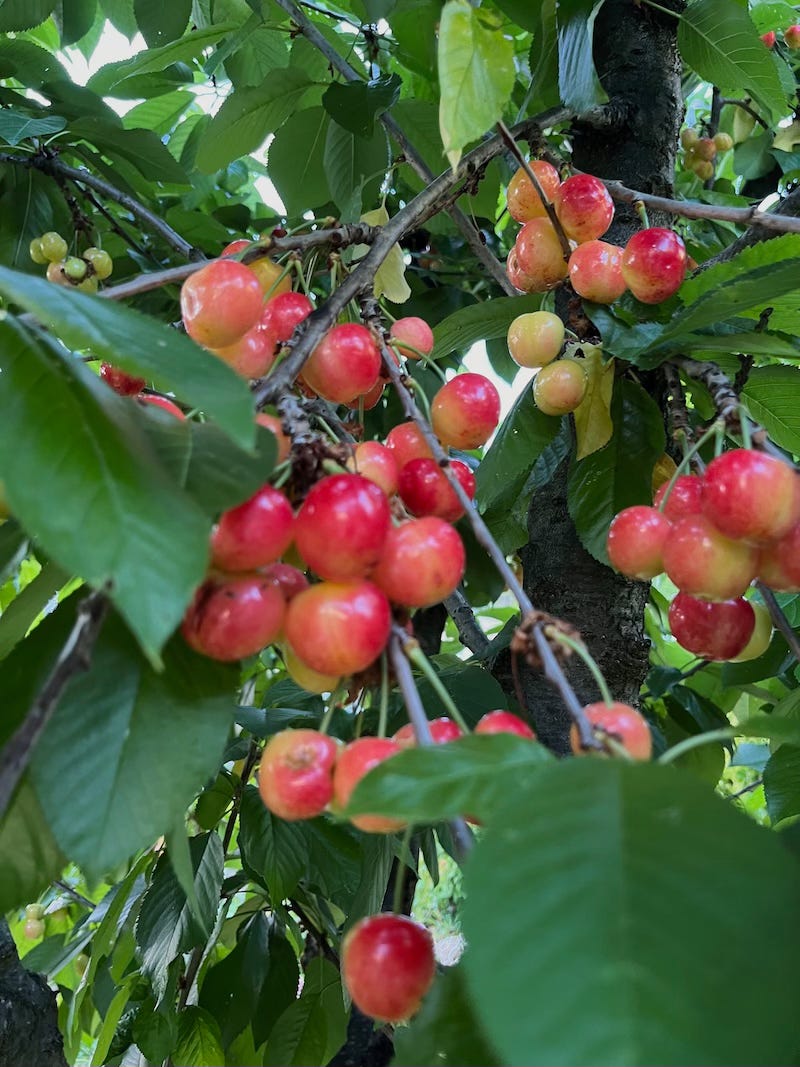
.
Because of a miniscule harvest last summer, I cut back my trees by a third. This June, my efforts were rewarded with a bounty of sweet cherries, even enough to share with the flying acrobats. Most people are familiar with Bing cherries sold in supermarkets. The deep red-purple black colored Bings are firm, juicy, and known for their rich sweet taste with a hint of tartness. Compared to the Bings, the mild, honeyed flavored, and lesser-known Queen Anne varieties are crunchier, marbled with bright red and yellow hues. Like the birds, I gobble them fresh from the branch. When I was a kid, our family always worked on neighboring farms picking cherries, which usually ripened in late May. The pay was minimal, but the perks included opportunities to eat these delectable fruits as we filled the buckets for sale. One year my siblings and I competed for who could pick the most cherries in the fashion of “one in my mouth, one in the bucket.” Becoming painfully sick, we all paid the price of our childishness. For years, none of us could tolerate the sight of a single cherry.
As adults, we laugh at our bowl of cherries mishap. We are again enamored of this luscious crop and enjoy it in salads, pies, and jams, eating in moderation. The birds have been dropping the pits throughout my garden where small cherry trees are sprouting.
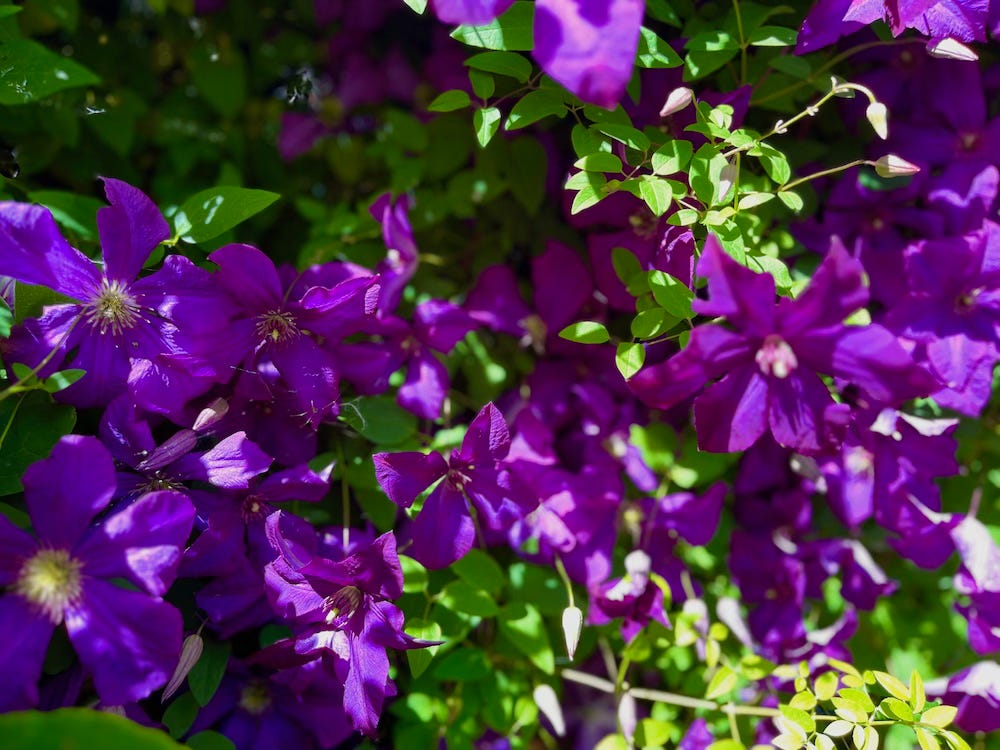
Because of our mild winters and hot summers, we can expect a wide range of blooms this summer. Stunning clematis experiences its second seasonal display, climbing and covering a pipe. Like most plants, clematis prefers well-drained soil filled with rich organic matter. Once clematis is established, it is relatively low maintenance, requiring minimal water, occasional fertilizer, and pruning to promote healthy growth and abundant flowering, attracting bees, butterflies, and hummingbirds.
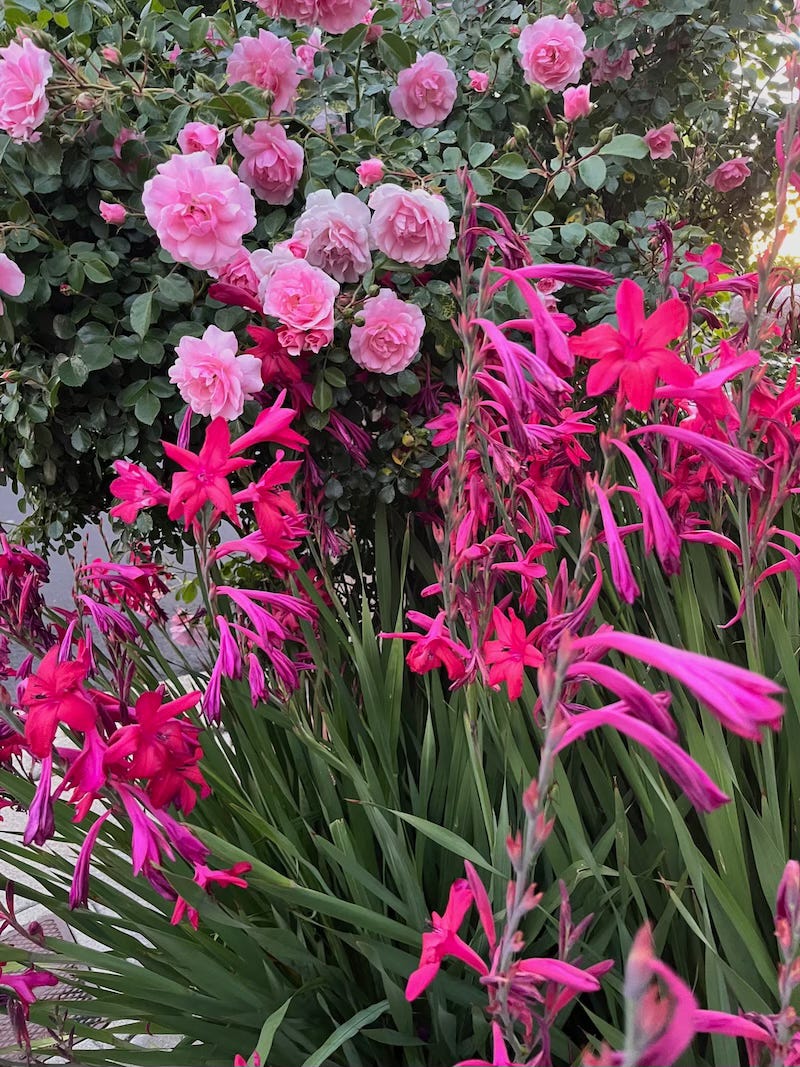
Roses bloom profusely in my garden adding beauty and perfume, while the common corn-flags add spires of fuchsia pink torches. My perennial, spicy-scented Asiatic lilies attract pollinators with captivating fragrances amidst big, bold blooms. Although these lilies make gorgeous bouquets, as the splendid stars of my garden, I am loathe to cut any!
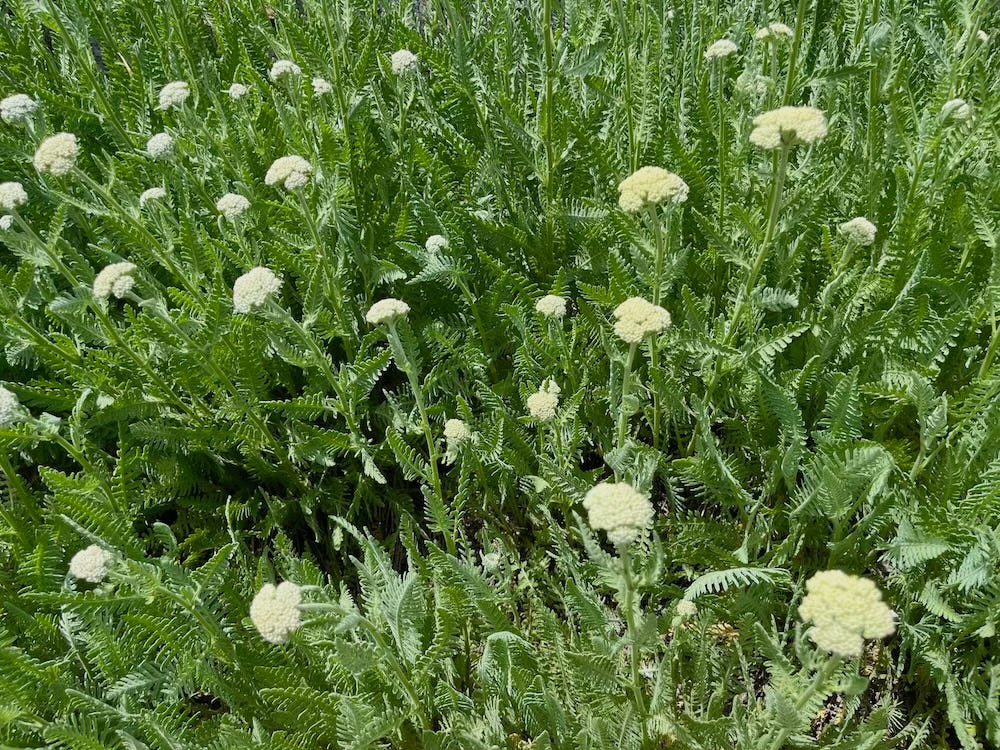
The fern-like foliage of yarrow adds visual interest while improving drainage with its deep roots that assist in breaking up compacted clay. The leaves accumulate nutrients making yarrow an excellent compost companion. By attracting pollinators and ladybugs, yarrow increases biodiversity, promoting a healthier ecosystem. As a medicinal plant with compounds containing anti-inflammatory, antiseptic, and analgesic properties, yarrow has for centuries been used to treat wounds, alleviate symptoms of colds and fevers, and reduce the pain of insect bites.
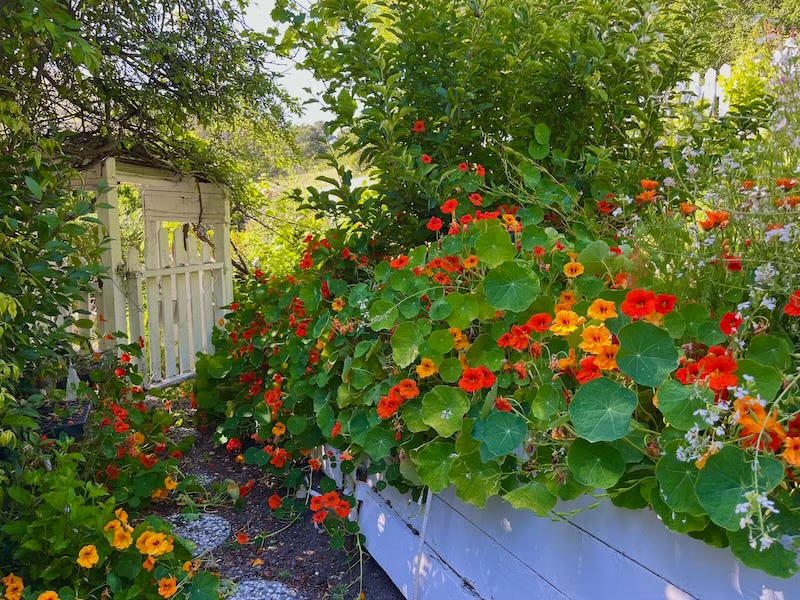
The edible flowers and leaves of nasturtium add a peppery punch to salads, sandwiches, and sides. These “Nonna” plants, as I call them because they grew in my grandmother’s gardens, are easily grown from seed. Their dense flowers and foliage can cascade over walls, fences, and raised beds, or create a living mulch as a ground cover to suppress weeds. Nasturtiums attract beneficial insects that control unwanted pests including aphids, whiteflies, and squash bugs.
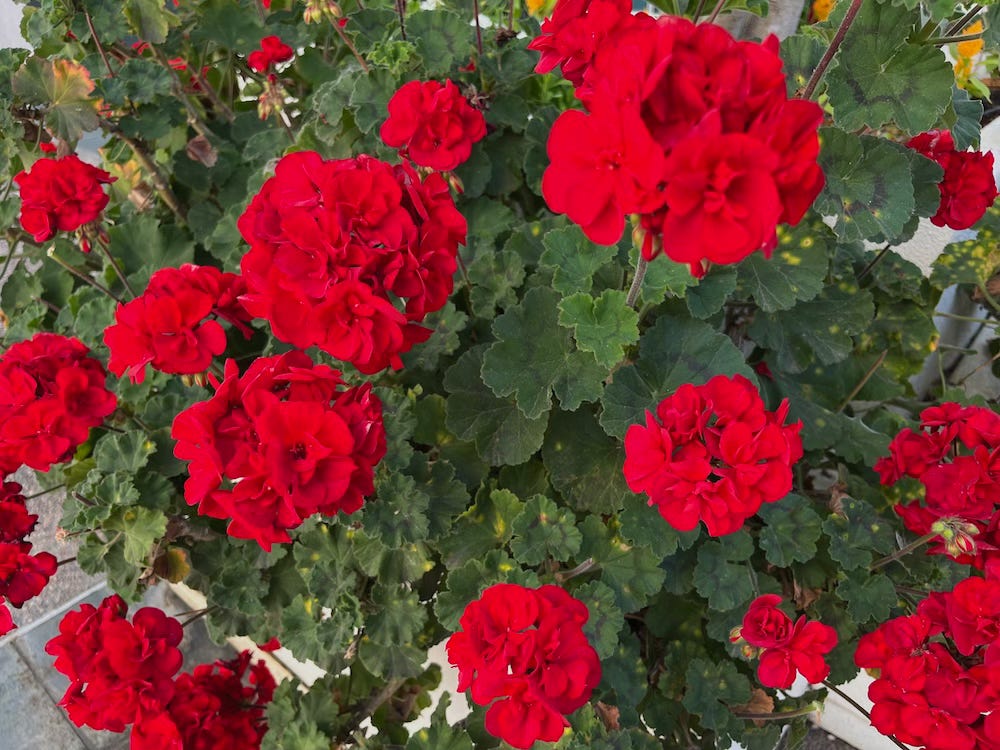
To bring vibrant color to your patio or porch, plant a container of bright red geraniums. Geraniums will grow in full sun or partial shade, easily root from cuttings, and require very minimal care. Prune back spent flowers or leggy stems to encourage bushier blooms that will continue through the fall. Geraniums are the no-fail June boon.
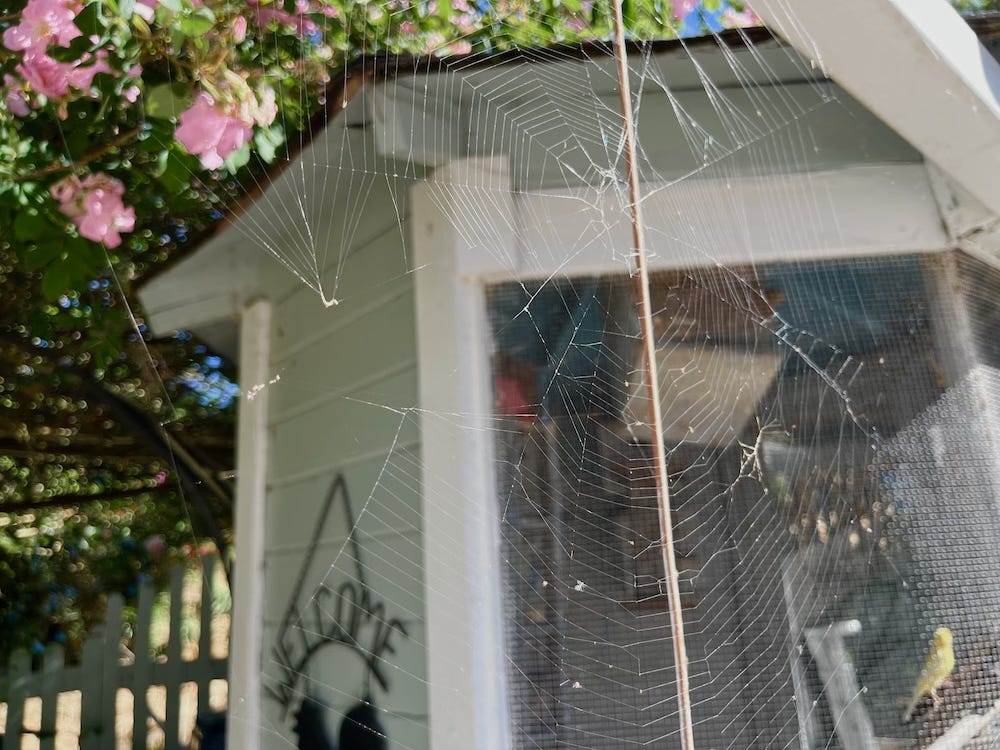
Are you finding a plethora of spider webs in your landscape? Congratulations! Gardens that avoid chemical pesticides tend to have a higher spider population. As a natural pest control, spiders help to maintain a balance between predator and prey species. Although it is unnerving to run head-first into a nearly invisible web, I welcome these hunters of mosquitoes, flies, aphids, beetles, and more.
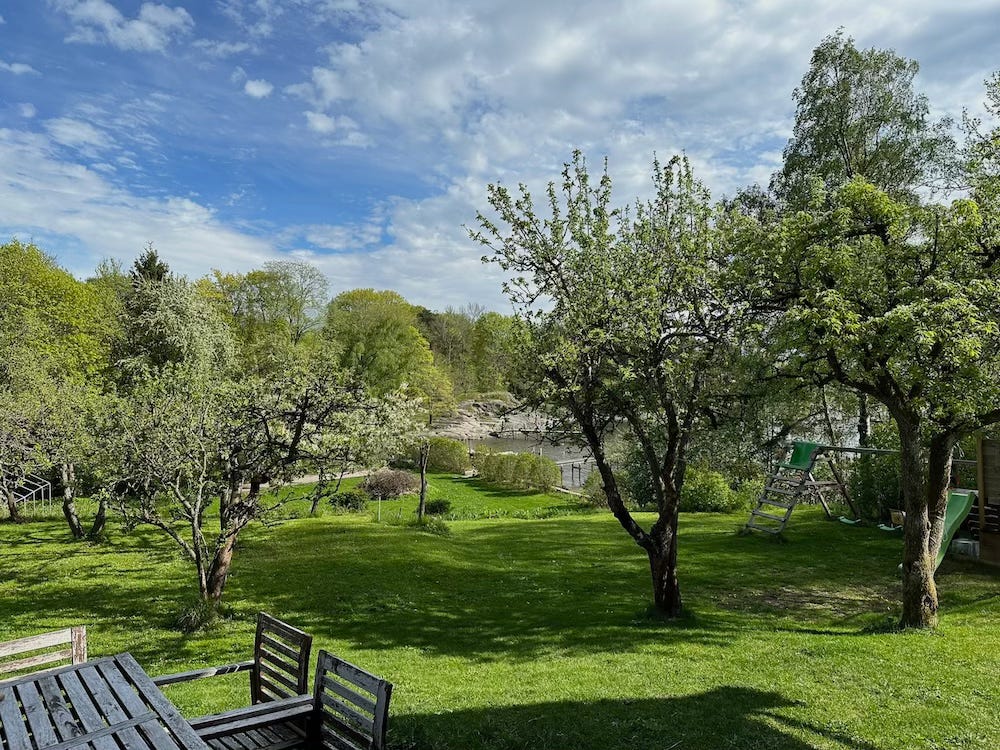
Despite the prevalent trend to rip out lawns to minimize water usage in fire-prone areas, having a well-maintained, cut to three inches or less green grass area adds a defensible space to homes, reducing the risk of ignition and spread of a wildfire. Although no landscaping choice is fire-proof, a healthy, mowed, and watered lawn, may reduce the amount of combustible material available to fuel a fire. Lawns are visually appealing and offer a restful environment providing a refreshing respite to our eyes from the hustle and bustle of modern life. Whether in a park or a small backyard, a lawn soothes the senses and invites people to play. Cartwheels, croquet, picnics, and stargazing connect us to the natural elements.
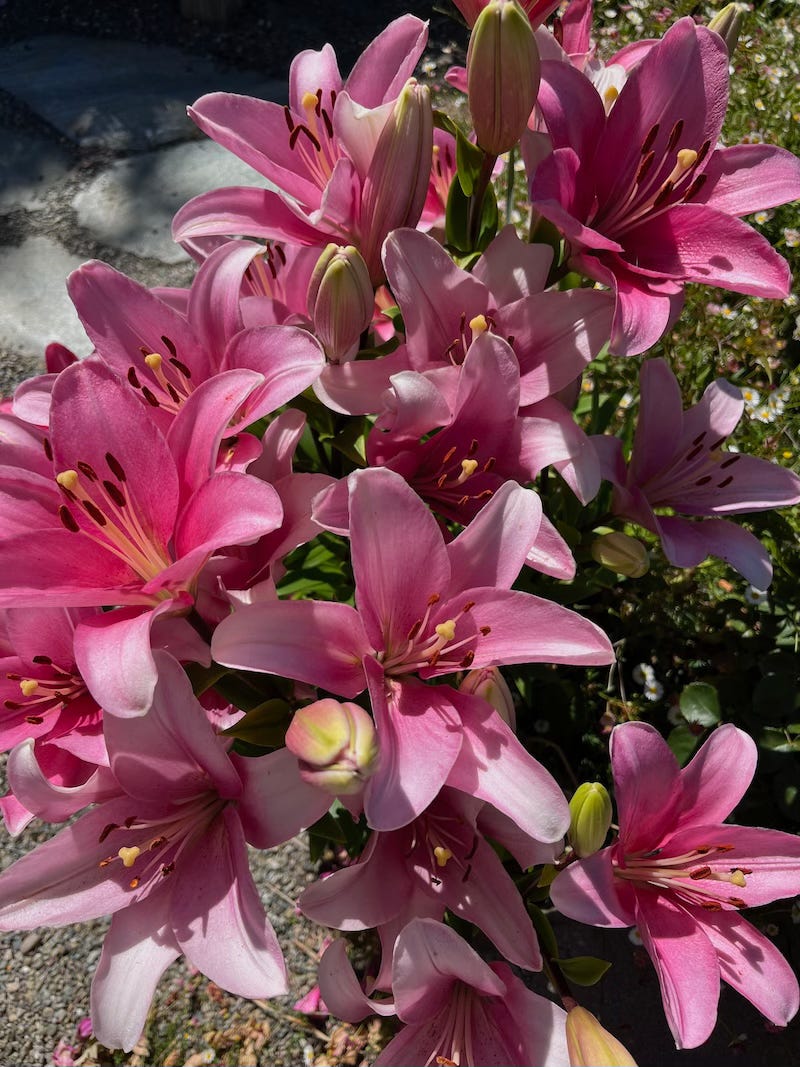
Sitting on green grass is the perfect place to eat a bowl full of cherries. So live and laugh at it all.
Happy Gardening. Happy Growing. Happy June Boon!
Read Lamorinda Weekly: https://www.lamorindaweekly.com/archive/issue1809/Digging-Deep-with-Goddess-Gardener-Cynthia-Brian-June-Boon.htm

For more gardening advice for all seasons, check out Growing with the Goddess Gardenerat https://www.CynthiaBrian.com/books. Raised in the vineyards of Napa County, Cynthia Brian is a New York Times best-selling author, actor, radio personality, speaker, media and writing coach as well as the Founder and Executive Director of Be the Star You Are!® 501 c3 which was just honored as the 2024 Nonprofit of the Year by the Moraga Chamber of Commerce. Tune into Cynthia’s StarStyle® Radio Broadcast at www.StarStyleRadio.com. Her newest children’s picture book, Books in the Barnyard: Oh Deer! from the series, Stella Bella’s Barnyard Adventures is available for discounted pre-sales at https://www.CynthiaBrian.com/online-store. Hire Cynthia for writing projects, garden consults, and inspirational lectures. Cynthia@GoddessGardener.com
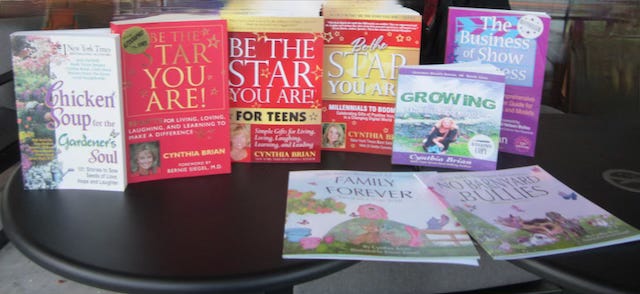
Thank you for reading StarStyle® Empowerment . This post is public so feel free to share it.
StarStyle® Empowerment is a reader-supported publication. To receive new posts and support my work, consider becoming a free or paid subscriber.





